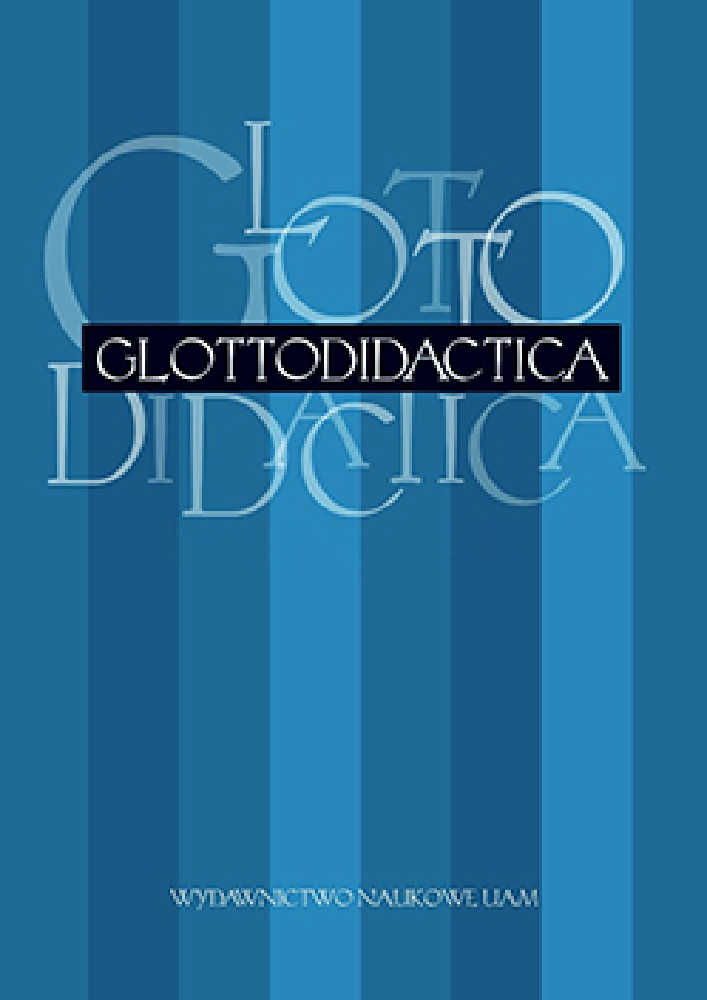Abstract
This research project aims at identifying and describing possible critical incidents which may arise in the framework of transcultural discursive practices between professionals from Germany and Spain in business situations, for example, in interviews, meetings, negotiations, and decision making. The methodology employed in this paper is based on an empirical study using by means of personal interviews and questionnaires in order to defend or refute cultural standards in the business world existing in established theoretical foundations.
Literaturhinweise
Atienza, J.L. (2005). ¿Cómo se ven? ¿Cómo nos ven? Atrapados en los estereotipos. Oviedo: Servicio de Publicaciones de la Universidad de Oviedo.
Bolten, J. (2007). Einführung in die interkulturelle Wirtschaftskommunikation. Göttingen: Vandenhoeck & Ruprecht.
Economist Intelligence Unit (2012). Competing across borders. How cultural and communication barriers affect business. http://www.eiuperspectives.economist.com/economic-development/competing-across-borders [21.10.2017].
Fink, G. / Meierewert, S. (2001). Interkulturellels Management. Österreichische Perspektiven. Wien: Springer. DOI: https://doi.org/10.1007/978-3-7091-6239-2
Katz, L. (2008). Negotiating international business – The Negotiator´s reference guide to 50 countries around the world (Germany and Spain). http://www.leadershipcrossroads.com/mat/cou/Germany.pdf http://www.leadershipcrossroads.com/mat/cou/Spain.pdf [7.12.2017].
Keim, L. (1994) Interkulturelle Interferenzen in der deutsch-spanischen Wirtschaftskommunikation. Frankfurt am Main: Peter Lang. Europäischer Verlag der Wissenschaften.
Kiefer, K.H. (2015). Critical Icidents und der Faktor „Kulturalität“ in der grenzüberschreitenden Wirtschaftskommunikation. Glottodidactica. An International Journal of Applied Linguistics XLII/1, pp. 50-62. http://pressto.amu.edu.pl/index.php/gl/article/view/4157/4239 [4.3.2018]. DOI: https://doi.org/10.14746/gl.2015.42.1.4
Maletzke, G. (1996). Interkulturelle Kommunikation zur Interaktion zwischen Menschen verschiedener Kulturen. Berlin: VS Verlag für Sozialwissenschaften.
Rehbein, R. / Thomas, A. /Steinhuber, S. (2009). Beruflich in Spanien. Trainingsprogramm für Manager, Fach- und Führungskräfte. Göttingen: Vandenhoeck & Ruprecht.
Schroll-Machl, S. (2002). Die Deutschen-Wir Deutsche. Fremdwahrnehmung und Selbstsicht im Berufsleben. Göttingen: Vandenhoeck & Ruprecht.
Siebold, K. (2008). Actos de habla y cortesía verbal en español y en alemán. Estudio pragmalingüístico e intercultural. Frankfurt am Main: Peter Lang Verlag.
Trompenaars, F. / Hampden-Turner, C. (1997). Riding the waves of cultures. Electronic Book. http://pdfs.semanticscholar.org/baa5/8e86493834d21459cba14437d8900542d666.pdf [10.12.2017].
Lizenz
Copyright (c) 2018 Raquel Mateo González

Dieses Werk steht unter der Lizenz Creative Commons Namensnennung - Keine Bearbeitungen 4.0 International.
Authors
Authors of texts accepted for publication in Glottodidactica are required to complete, sign and return to the editor's office the Agreement for granting a royalty-free license to works with a commitment to grant a CC sub-license.
Under the agreement, the authors of texts published in Glottodidactica grant the Adam Mickiewicz University in Poznań a non-exclusive, royalty-free license and authorize the use of Attribution-NoDerivatives 4.0 International (CC BY-ND 4.0) Creative Commons sub-license.
The authors retain the right to continue the free disposal of the work.
Users
Interested Internet users are entitled to use works published in Glottodidactica since 2016, under the following conditions:
- attribution - obligation to provide, together with the distributed work, information about the authorship, title, source (link to the original work, DOI) and the license itself.
- no derivatives - the work must be preserved in its original form, without the author's consent it is not possible to distribute the modified work, such as translations, publications, etc.
Copyrights are reserved for all texts published before 2016.
Miscellaneous
Adam Mickiewicz University in Poznań retains the right to magazines as a whole (layout, graphic form, title, cover design, logo etc.).





